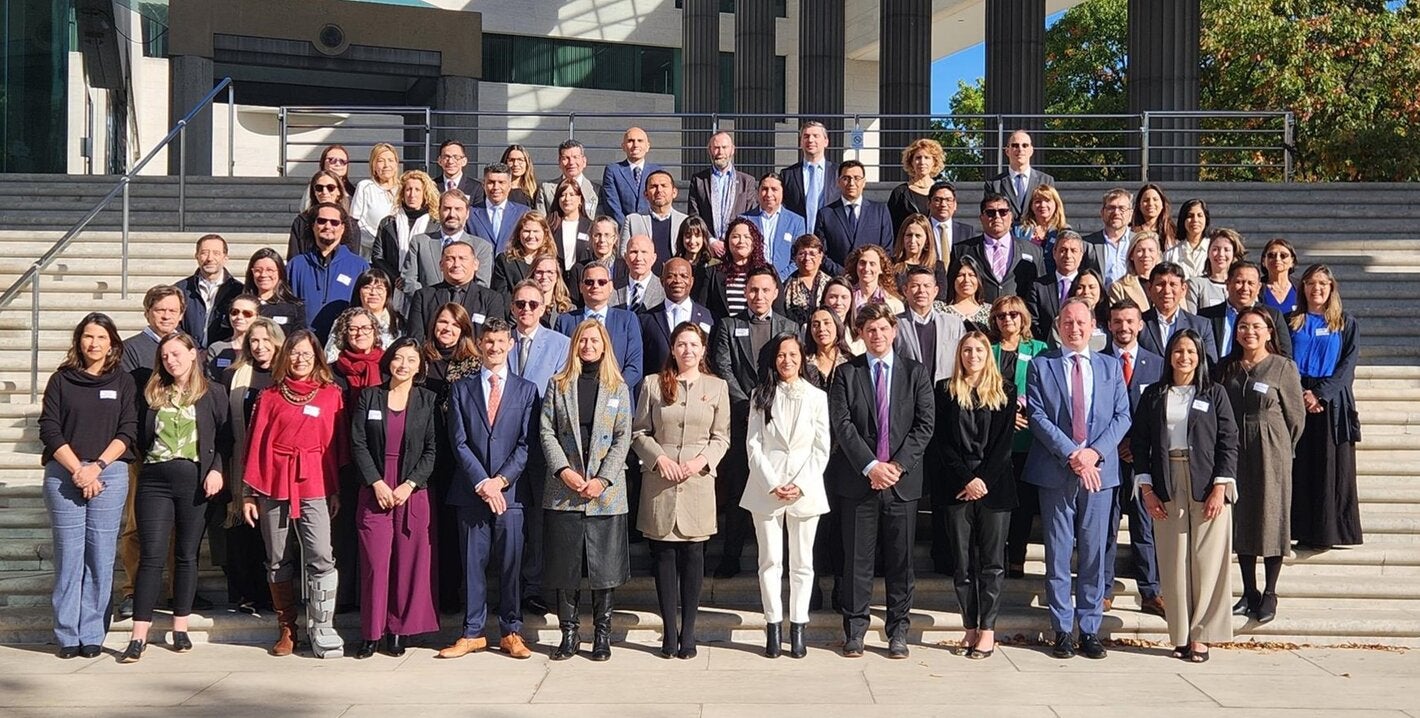
Washington, D.C., October 30, 2024—The Pan American Health Organization (PAHO) brought together policymakers from 15 countries of the Region to participate in the three-day workshop, "Advancing Tobacco Taxes in Latin America," at the Johns Hopkins Bloomberg Center in Washington, D.C. The meeting focused on addressing the ongoing public health and economic challenges posed by tobacco consumption in Latin American countries, emphasizing the potential of tobacco taxes as a cost-effective tool to reduce the burden of tobacco use.
Co-organized by PAHO/WHO, the World Bank, Johns Hopkins University's Institute for Global Tobacco Control and Economics for Health, and the Organization for Economic Co-operation and Development (OECD), the workshop drew on the expertise of leading global institutions committed to public health and economic reform.
Participants include delegates from ministries of health and finance from Argentina, Belize, Bolivia, Brazil, Chile, Colombia, Costa Rica, Ecuador, Guatemala, Mexico, Panama, Paraguay, Peru, Uruguay, and Venezuela. Government delegates collaborated on strategies to design and implement effective tobacco tax policies to reduce smoking, improve public health, and generate much-needed revenue, along with technical experts and civil society representatives. Experts provided insights to delegates to help navigate challenges and apply best practices in tobacco taxation, equipping them with the knowledge and tools necessary to advance effective tobacco tax reforms.
The event highlighted the importance of reframing tobacco taxation as a public health intervention with the additional benefit of generating revenue for reinvestment in health systems. Throughout the workshop, participants exchanged experiences and explored innovative approaches suited to their respective countries' specific fiscal and health realities.
Tobacco use remains one of the leading causes of preventable death in Latin America, contributing to high rates of non-communicable diseases (NCDs). Despite clear evidence that tobacco taxation is one of the most effective public health interventions to reduce consumption, its use is still limited in many Latin American countries.
The "Advancing Tobacco Taxes in Latin America" workshop, which brought together policymakers, public health professionals, and technical experts, fostered regional cooperation and built momentum for enacting effective tobacco tax reforms. Through initiatives like this, PAHO continues to support member states in implementing evidence-based policies aligned with the Strategy and Plan of Action to Strengthen Tobacco Control in the Americas, helping reduce NCDs' burden and improve regional public health outcomes.



